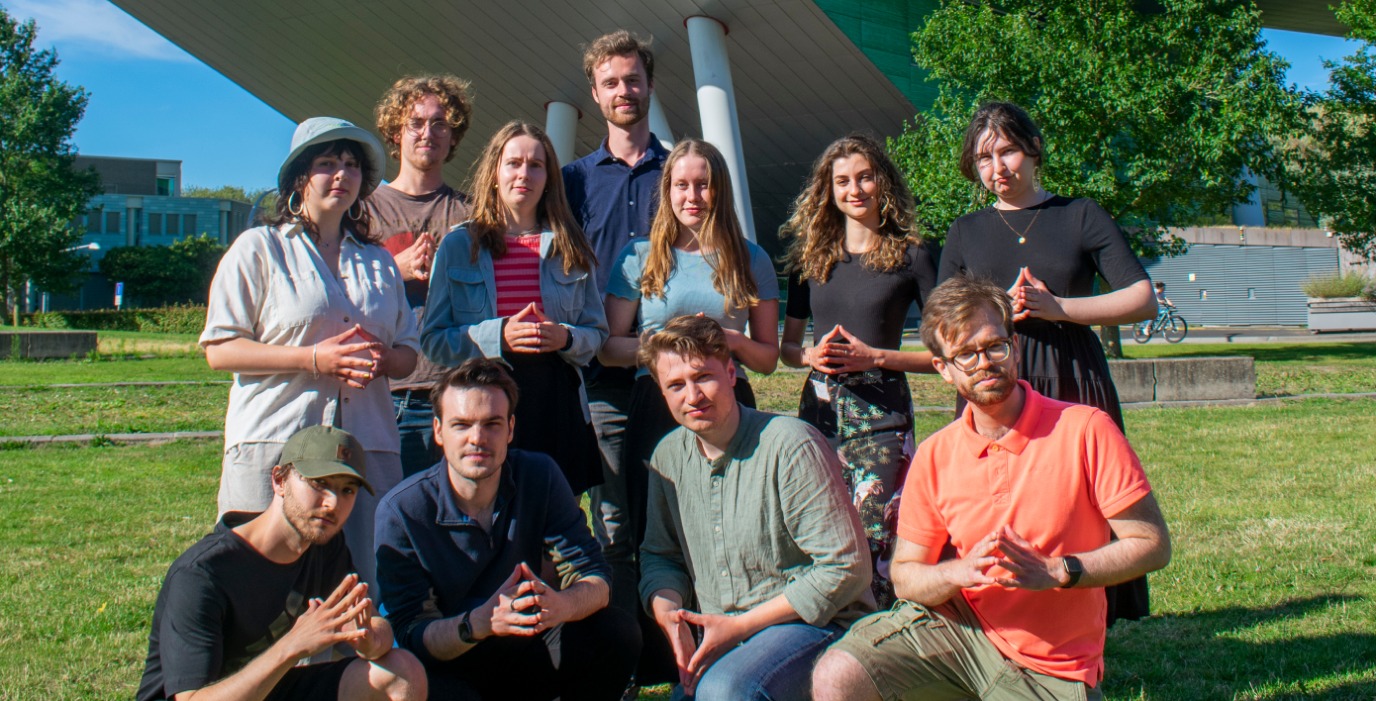Team Groningen wins medal with Bye-o film in iGEM competition Paris
Groningen's iGEM 2023 team has won a silver medal at the annual iGEM (international Genetically Engineered Machine) competition with their Bye-o-film project. Their project focuses on fighting infections in medical implants. In Paris, multidisciplinary teams of students presented their solutions to global problems using synthetic biology.
This year's Groningen team consisted of 14 Bachelor's and Master's students from the University of Groningen and students from the Minerva Art Academy. To win a silver medal, you must, among other things, have successfully developed the technique of your project and be able to demonstrate that you have thought about how your project adds value to the world.
Bye-o-film
The iGEM Groningen team has developed a biosensor to fight infections on medical implants. When medical implants are infected, a layer of harmful bacteria forms on the surface of the implant: a biofilm. This explains the project name: 'Bye-o-film'. They also developed their own app that can alert patients when a biofilm layer forms.
Prototype
The prototype realised by the team succeeded in a laboratory environment, but needs further improvement before it can be used for real. Next year, a new iGEM team can build on Bye-o-film's concept design and further develop it into a final product.
IGEM competition
The iGEM competition took place from 2 to 5 November in Paris. The subjects of the 400 participating teams vary considerably, but all revolve around synthetic biology. This branch of science changes cells or micro-organisms into all kinds of useful substances. Synthetic biology gives the opportunity to tackle social, environmental or medical problems. The international iGEM competition encourages students' creativity to do just that.
Read more
Science LinX news release on team iGEM Groningen 2023: Say goodbye to biofilm

More news
-
17 February 2026
The long search for new physics
-
10 February 2026
Why only a small number of planets are suitable for life
